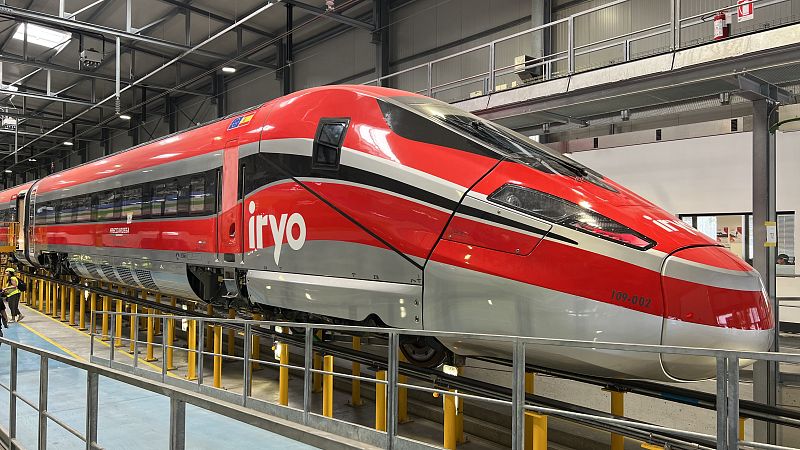The fastest train in Europe will make you want to quit continental flights forever

High speed trains are an increasingly popular alternative way of exploring the continent.
Italy alone has seen passenger numbers grow by 517 per cent - rising from 6.5m in 2008 to 40 million in 2018.
Trenitalia’s Paris to Milan route was first introduced in December 2021, serviced by Hitachi Rail’s ETR1000.
This super high speed train travels at 300km/h - with the ability to go400km/h if not limited by track regulations - making it the fastest train in Europe.
In its first nine months of service, the new route persuaded many travellers to move away from flying and passenger numbers increased by 57 per cent.
ETR1000s are already operating in Italy, France and Spain (where it is run by ILSA under the name IYRO) and with suitable track available for services in five other European countries.
To find out more Euronews Travel travelled to their factory in Italy to learn more about why you should look to swap a flight for a high speed train.
Flying is 20x worse for the environment than taking the train
“Thinking about the emissions, it is true that the aeroplane is the worst because the emissions are seven times more than cars,” Luca D’Aquila, COO of Hitachi Italy tells Euronews Travel.
“And 20 times more than a train.”
The ETR1000 is powered by electricity meaning it also won’t contribute to air pollution. The trains themselves are built from 94.4 per cent recyclable materials.
The EU has set targets of a 55 per cent reduction in emissions by 2030 and total climate neutrality by 2050.
Though there is a move towards electric cars across Europe which will greatly reduce personal travel emissions, public transport is still a better choice.
“Public transport is many times more efficient than individual transport. Individual cars consume, for instance, about seven times more electricity,” says Herald Ruijters, director of DG Move, the European Commission body responsible for transport in the EU.
“So even in the future, when we have fully decarbonised, you still will have to rely on public transport for reasons of capacity, but also for reasons of energy efficiency.”
If you’re less concerned about the environment and are more interested in saving time and travelling in comfort then trains are still a great option for you.
Travelling by train is easier than flying
The Hitachi ETR1000 has four different carriage types - Executive, Business, Premium and Standard - to suit a variety of budgets.
Even the standard class offers delightfully comfortable leather seats. And with the train’s claim that it’s the quietest and smoothest ride in Europe, you’re in for a relaxing journey, no matter the carriage.
Additionally, if you account for all the extra time you waste getting to the airport, going through security and waiting around there’s really not much difference in journey time either.
For example, a popular long distance route that has seen many travellers move away from flying is Milan to Rome.
A direct flight takes around 1 hour and 10 minutes. Italy’s ETR1000 service, known as Frecciarossa (the Red Arrow) takes just 3 hours and 15 minutes. And with no need to travel to the outskirts of the city to the airport, you’re saving a lot of time.
75 per cent of travellers on this route now choose to take the train and research by Hitachi has shown that 92.5 per cent of passengers rank their experience as seven out of ten or higher.
The train also has a reliability score of 0.6 major issues per million kilometres. To put this into perspective, the journey between Rome and Milan is roughly 574 km. If you take this train over 8,500 times, you might encounter three disruptions to your journey.
Watch the video above to learn more about Hitachi’s high speed trains in Europe.

